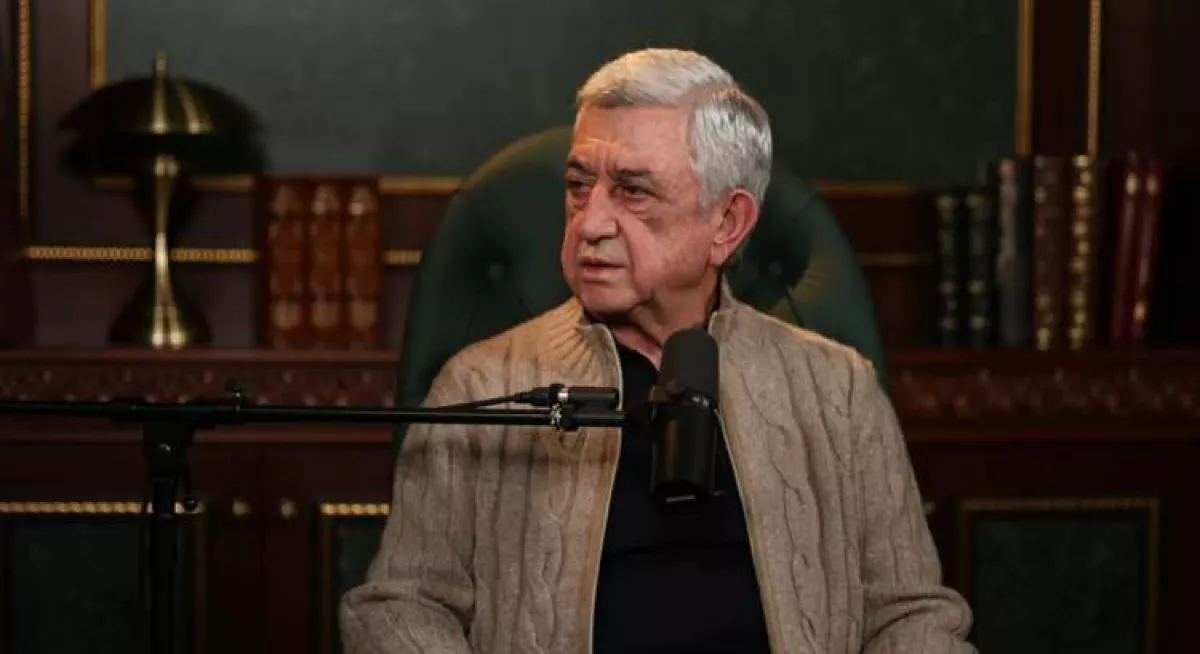Kicked around: Sargsyan’s triple defeat Principles vs. bargaining
The story of the 2018 “Velvet Revolution” is well known in Armenia—and beyond—but recent admissions by the current Armenian Prime Minister Nikol Pashinyan add new shades to this picture.
His account of the negotiations that took place at that time in a detention facility shows that the key events of the revolution unfolded not only on the streets but also behind closed doors—where the fate of the old regime was being decided.
What is particularly noteworthy in these revelations is how Pashinyan, in the position of a prisoner and insurgent without any real levers of power, consistently and coolly rejected all of Serzh Sargsyan’s proposals, which were made through his intermediaries.

So, in a recent interview, Sargsyan claimed that at the height of the 2018 events, Nikol Pashinyan was allegedly offered the position of Deputy Prime Minister. However, Pashinyan stated that no such conversation ever took place.
"It’s a good thing the entire revolution happened practically live," he noted.
Thus, the current Armenian leader did not merely reject the idea—he rejected the very principle of political bargaining. For him, the issue was not about positions, portfolios, or agreements. It was about the transfer of power.
A telling episode is the series of meetings between Nikol Pashinyan and Karen Karapetyan, known in certain circles as “Gilet,” who at the time acted as an intermediary between him and Serzh Sargsyan. Formally, he came to the detention facility to “negotiate”; in reality, his goal was to save what remained of the regime. Karapetyan tried to frame the situation as if Pashinyan’s release would signal a “reconciliation” and that the revolution would end there. The plan was simple: Karapetyan, an elite-approved candidate, would take the prime minister’s seat, while Pashinyan would gain freedom and the formal status of a victor—without any real power.
Pashinyan’s response was: “This is unacceptable. Serzh Sargsyan must step down.” The old Armenian authorities, accustomed to buying loyalty, encountered a man who would not negotiate and, even behind bars, refused a deal that could have guaranteed him comfort and safety. It was a psychological blow to the regime.

But the story did not end there. Karapetyan returned with a new proposal: Serzh Sargsyan was willing to step down, but only later—after the Francophonie summit. The logic was as old as time: “Let’s not rush.” Pashinyan refused again.
Then Karapetyan came back with yet another idea—Sargsyan would resign in June. And once more, he heard the same response: “This is unacceptable. He must step down today, tomorrow, at the latest the day after.”
These conversations became a defining moment of the “Velvet Revolution.” The old regime tried to save face, but Pashinyan demanded Sargsyan’s resignation. His persistence meant that the revolution would not stop until the old regime fell completely. Ultimately, Karapetyan returned with the final message: “The conditions are accepted.” This marked the capitulation of the previous system.
Taken together, all of this illustrates how timid the Armenian authorities were at the time. Pashinyan had neither the police nor the army at his back. All of that power was in the hands of Serzh Sargsyan, who controlled the security forces, parliament, and state resources. Yet he lost, because the people of Armenia stood against him.
In light of all this, it becomes clear why the third president so desperately avoids direct debates with Pashinyan. The current prime minister’s revelations show that a conversation on an “equal” footing with Sargsyan is simply impossible. Debating someone who has already forced you out of office is not a discussion—it is a reminder of defeat.
However, viewed more broadly, the episode with Karapetyan and Sargsyan is not only a historical fact but also a metaphor for Armenia’s political landscape. The revanchists, who try to drag the country back into the past, operate according to the same logic as in 2018. Yet it can be assumed that they have little chance of realising their ambitions, because they continue to play by the old rules, while the world has long since changed.








